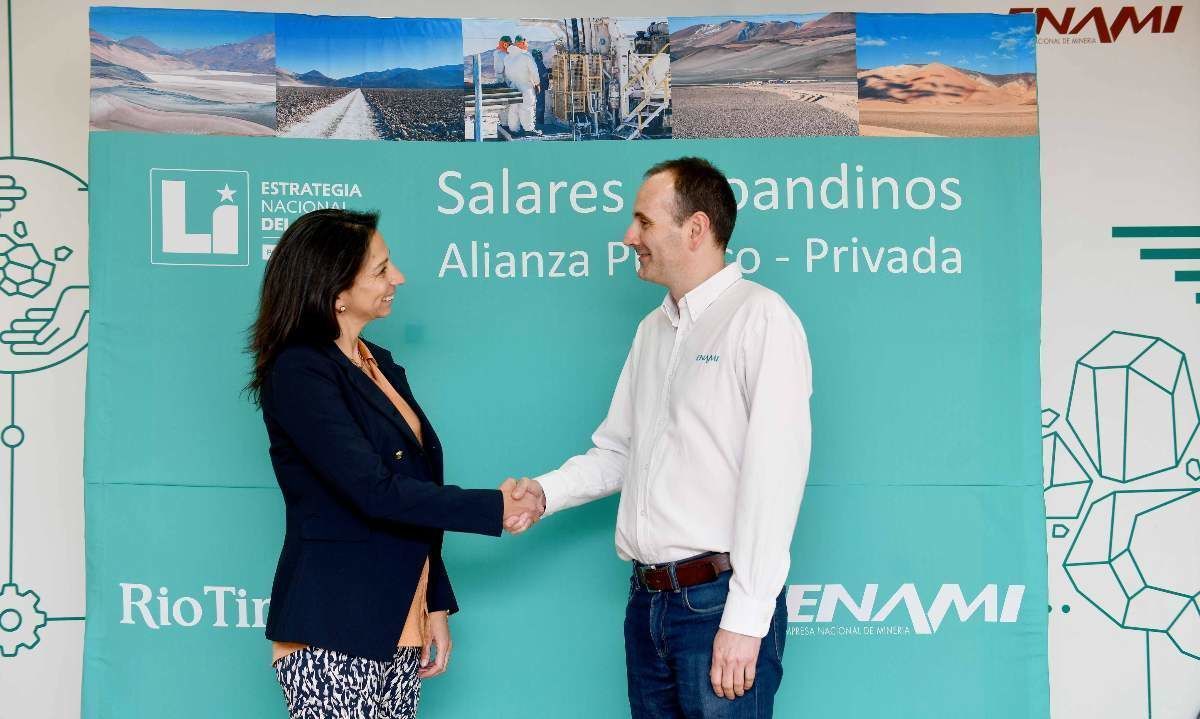
Rio Tinto strengthens its presence in South America as it builds one of the world’s leading lithium portfolios to support the global energy transition.
Global mining giant Rio Tinto has been officially selected by Chile’s state-owned Empresa Nacional de Minería (ENAMI) as the preferred partner for the Salares Altoandinos lithium project, located in the mineral-rich Atacama region. This key development marks a significant step forward in Chile’s ambition to consolidate its leadership in the global supply of critical minerals for the clean energy transition.
Rio Tinto Chief Executive Jakob Stausholm commented, “We are honoured to have been selected by ENAMI as the preferred partner for the Salares Altoandinos project, which has the potential to become a world-class lithium development. We look forward to deepening our partnership with ENAMI, building on our regional interests in Nuevo Cobre and Salar de Maricunga, and supporting Chile’s strategic role in the global energy transition.”
Under the terms of the proposed agreement, Rio Tinto will acquire an initial 51% stake in the project, with ENAMI retaining the remaining 49%. The transaction remains subject to the finalization of binding agreements, regulatory approvals, and customary closing conditions.
Expanding a World-Class Lithium Portfolio
The partnership with ENAMI is part of Rio Tinto’s broader strategy to build a globally integrated lithium business capable of meeting growing demand from the electric vehicle and energy storage sectors. With recent acquisitions—such as Arcadium Lithium—Rio Tinto now holds one of the most extensive lithium portfolios in the world.
The company’s South American pipeline, which complements its lithium assets in Canada and Serbia, now includes:
Chile:
- Salares Altoandinos – in partnership with ENAMI
- Maricunga – in collaboration with Codelco
Argentina:
- Projects include Rincon, Olaroz, Fenix, Sal de Vida, and Cauchari
According to Benchmark Mineral Intelligence (BMI), lithium demand is expected to grow at over 10% annually through 2040, with a market supply deficit projected by the end of this decade. Despite current spot prices being down more than 80% from peak levels, Rio Tinto views the long-term market fundamentals as highly favourable.
Operational Excellence and Sustainable Development
Rio Tinto’s investment strategy is backed by a strong balance sheet and annual capital expenditure guidance of US$10–11 billion. The company aims to maximize returns through operational excellence and advanced lithium extraction technologies, including 28 years of experience in Direct Lithium Extraction (DLE).
Its approach also emphasizes:
ESG leadership, including community engagement and reduced environmental footprint
Brine reinjection studies to lower the impact of lithium extraction
Infrastructure synergies across power, logistics, and processing
Minimizing freshwater usage through recycling and innovation
In Chile, Rio Tinto envisions the creation of a world-class copper-lithium district in the Atacama, leveraging shared infrastructure and local partnerships. In Argentina, it plans to evolve its lithium assets into competitive “super-hubs” of production scale.
Looking Ahead
With this partnership, Rio Tinto is poised to play a pivotal role in shaping South America’s future as a global lithium powerhouse. The company will continue to explore Tier 1 opportunities worldwide, reaffirming its commitment to building a world-class lithium business anchored in responsible mining, technological innovation, and long-term community value.



